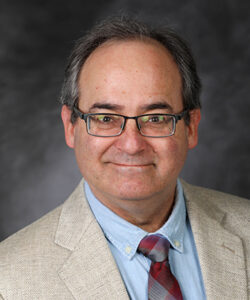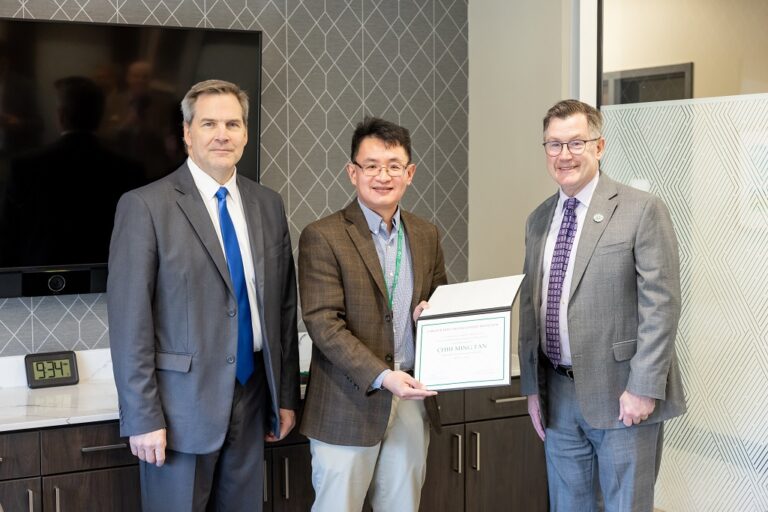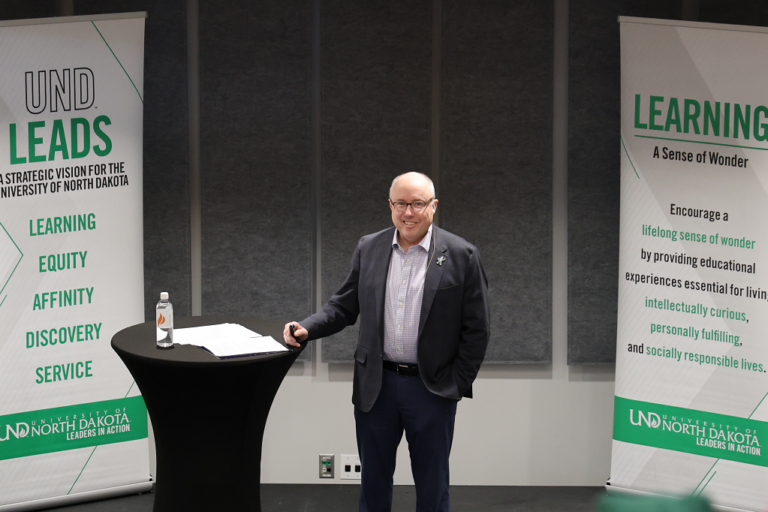Best in blue
After excelling at a North Dakota police academy, three new UND police officers stand ready to serve

Three UND police officers who this summer attended a North Dakota police academy graduated at or near the top of their class.
Of the 13 students who graduated from the summer session of Lake Region State College’s Peace Officer Training Program, UND Officer Jacob Smith finished No. 1, Officer John Ertle finished No. 2 and Officer Seferino Hernandez Jr. finished No. 5, said Capt. Tracy Meidinger, assistant chief of operations for the University Police.
In addition, Ertle earned the No. 1 spot in the program’s Tactical Driving Course, as well as scoring in the top three in marksmanship.
“It’s quite an achievement and an accomplishment,” Meidinger said. “Hats off to them, as they’re all fine individuals and fine candidates, and they’re going to do a great job working in this community. We expect great things from them.”
Lake Region’s Certificate in Peace Officer Training is a rigorous one-semester program that satisfies the training requirements for employment as a police officer in North Dakota. The program takes place in an academy-style setting. Students have physical fitness training every morning, then attend classes and hands-on training sessions from 9-5 Monday through Friday.
And the subject matter is extensive, ranging from academic topics such as North Dakota criminal law, the rules of evidence and the specific laws of arrest, search and seizure, to practical skills such as crime scene processing, high-risk traffic stops, emergency vehicle operations and photography.
Through it all, though, and despite the competition for class rank and other awards, the graduates say they emerge with lifelong bonds. “That’s one of the things I’ll remember most,” Hernandez said. “We all had a great time getting to know each other. I got to know everyone’s backgrounds, where they’re from and what they’ve been through, and I definitely would say their numbers are saved in my cell phone forever.”
A native of Rio Grande City, Texas, Hernandez comes from a family of migrant workers who moved to the Red River Valley when he was eight. “My mom wanted to move up here for a better life,” he said. “So, Spanish was my first language, and it took me awhile up here to adjust to English.”
But that adjustment proceeded, and Hernandez graduated with his bachelor’s degree from UND in 2019. “I was a first-generation college student, and now, I’m so proud to have been hired by the UND Police Department,” he said.
Ertle also is from outside of the area originally; he was born in Shreveport, La., and retired from the Air Force last year. An early tour brought him to Grand Forks Air Force Base, where he met his Red River Valley-raised wife; and now, they’ve come back to her home area, where he has started his post-Air Force career.
A native of Meckinock, N.D., Smith worked for several years on Altru Health System’s ambulance service, and for several years after that at the Grand Forks County Correctional Center. “Then I got lucky enough to be hired by the University Police, and I’m very thankful for the opportunity,” he said.
Behind those expressions of gratitude — which all three officers expressed — is the fact that signing on with the UND Police Department is no easy feat. It starts with an agility test: an obstacle course that applicants must finish within a certain amount of time. Then comes a series of interviews, including one with UND Police Chief Rodney Clark. That’s followed by an extensive background check, a polygraph test and a psychological exam.
Then and only then do the officers start their field training, which can — between the academy and their on-campus work — last upwards of eight months.
“For everyone else on campus, the probationary period for a new hire is six months,” Meidinger said. “But our people are on a one-year probation, because we can’t bring them in and train them within six months. So it’s quite a process to recruit and train and make ready our officers in our community; and as I said, hats off to these three individuals for doing so well.”



